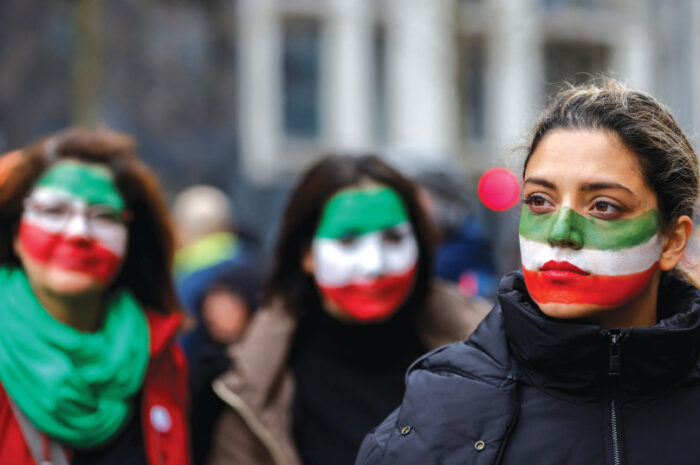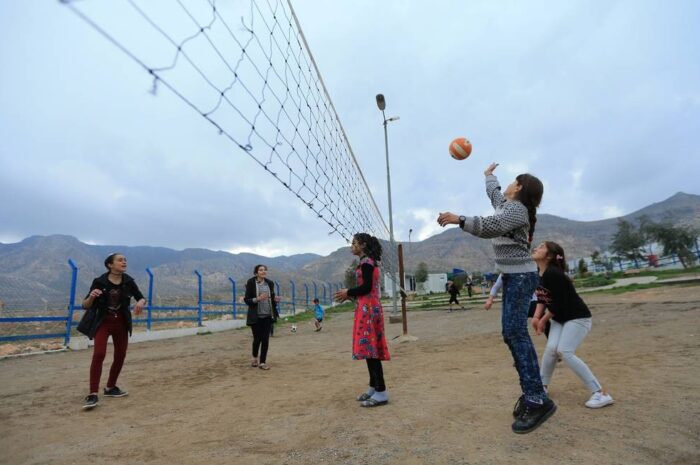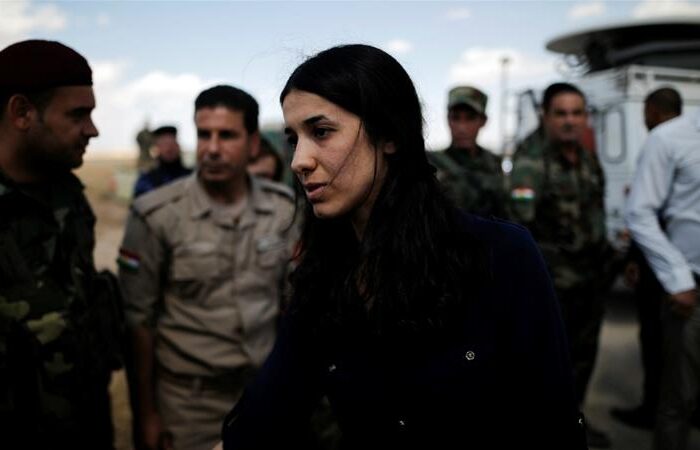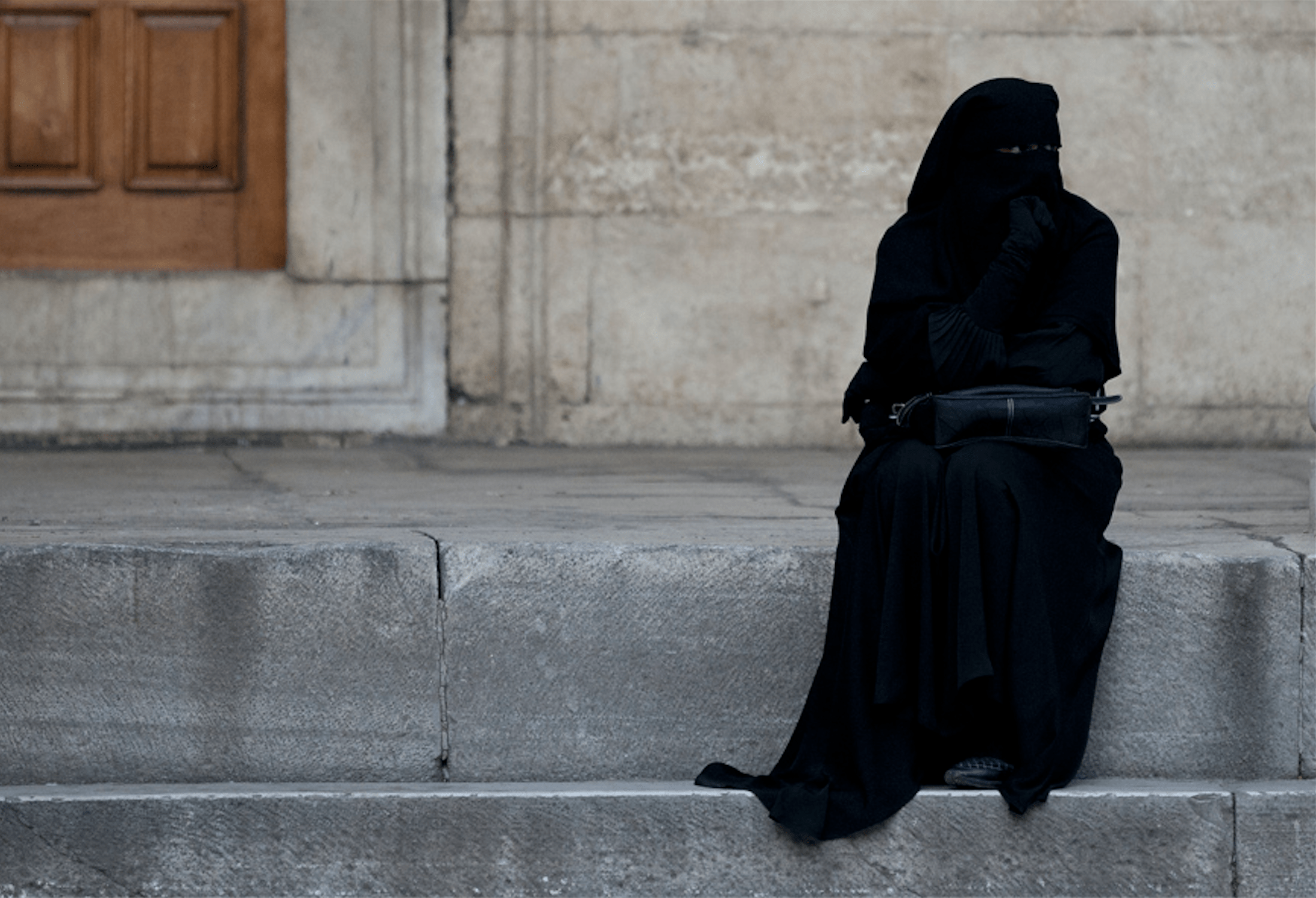
Note: The following essay appeared originally in Areo Magazine.
When in the course of human developments, current establishments prove to be unjustified and tyrannical to the requests of human dignity and rights, when these bodies only wish to subjugate, steal and dictate humankind, the individuals within a society most oppressed have the eternal right to dissent against, and revolt against, these establishments. Moreover, for those who wish to spectate to this injustice against human dignity, may it be known that those who are spectators of injustice are unknowing accomplices to tyranny. One has to take a stand when the moment demands it. One has to speak up to break the silence that comes from fear and inaction.
One of the largest kingdoms in the Arabian Peninsula, the Kingdom of Saudi Arabia (abbreviated “KSA”) lays claim to many things; notably, Islam’s holiest sites — Mecca and Medina — and oil reserves that span across its large desert.KSA, however, is also home to an archaic system of laws that get their reinforcement from culture, tradition, and religion. Those who disobey or dissent from these laws face serious punishments, from imprisonment and lashings to execution via public beheading. Dare to criticise the government and you will find yourself taken away by police, as was the case for blogger Raif Badawi who posted commentaries on Saudi society and was sentenced to a thousand lashes and imprisonment in 2012. He remains in prison to this day despite his wife Ensaf Haidar’s activism. These laws reach all aspects of Saudi society and benefit those few who are wealthy and powerful. However, what is notable is the way tradition and religion play a large part in Saudi society, as both extend to the private sphere and define the roles of men and women. Nowhere is this more evident then the Male Guardianship system.
Slavery still exists and it comes in a variety of different shapes and forms: the Male Guardianship system is one. Male Guardianship is a system within Saudi Society that requires women to have a male “guardian,” which is usually a male relative, who has to accompany and give permission to a woman for her to be allowed to do tasks. From wanting to travel abroad to wanting to seek an education or even medical help, under Saudi law, a woman is required to have a guardian who grants permission. Furthermore, if a woman should be involved in an abusive relationship with her guardian, then the guardian’s rights supersede those of the woman under Saudi law. This means that should a woman complain to Saudi authorities of abuse by her guardian, the word of the guardian is listened to first. The Male Guardianship system is geared to favour male guardians. Denying autonomy, financial independence, identity and rights for women, male guardianship eclipses the life of a Saudi woman and denies her a future by herself. It is a system that makes women slaves.
Moreover, the quality of a woman’s life depends entirely on her guardian. There are guardians who are liberal in their approach and allow women to travel abroad, seek an apartment, or work. However, just because the quality of a woman’s life may be good in some parts in KSA, it does not negate the negative experiences of women who depart from said “good experience.” In other words, just because some slaves are treated better than others, this does not deny what happens to the majority of slaves and the reality of slavery. As for every one woman in Saudi Arabia that benefits, there are at least ten others who do not. This must be recognized, as there are always apologists and PR spokes-people that the Saudi government is more than happy to prop up who deny this and who state how “nicely” women are treated in KSA. Others justify the treatment of women by appeals to analogies, often along the lines of claiming Saudi women are “queens” who must be protected. Even though queens are treated better than Saudi women are — having their own autonomy, as well as subjects to command — analogies like the “queen” analogy still persist, and the privileged stories of some Saudi women continue to be perpetuated, unknowingly at times, by writers.
Mona El-Naggar, an Egyptian writer based in New York, wrote an article in the New York Times, called I live a Lie: Saudi Women Speak Up in October of 2016, about the experiences of Saudi Women in KSA. In it are many powerful stories — but one story stands out. Meeting a group of privileged Saudi students in Washington Square Park, Mona asked them about their experiences under the system. What was their response? “We don’t need to abolish male guardianship. We need to teach men how to be better guardians.” This was a slap to the face of those struggling under the system. By including this story, Mona unknowingly undermined the point she sought to make. Audiences have a tendency to think that a problem is not as big as it is when there are two sides to it.
Many Saudi girls have escaped from their home nation, desiring to experience relative freedom. One example is Moudhi previously known by the online pseudonym, “Sinner.” Using Twitter as a means to raise awareness of the plight of Saudi women, as Twitter is just one of the few sites not banned in KSA, Moudhi — like many Saudi girls — sought to give both fellow Saudi women and foreign audiences a window into the life of a woman in KSA. In real life a law student studying in the USA, Moudhi wore a mask to protect herself from both her family and the system (Saudi Law, especially when it comes to studying abroad, can send back Saudi girls on scholarships for even daring to criticize KSA). After a long period of contemplation, Moudhi took off her mask and voiced public criticisms of the Male Guardianship system.
Despite the psychological abuse that follows her, both by her own family and Saudi males, Moudhi continues to raise a voice for Saudi women.
Caption: Moudhi
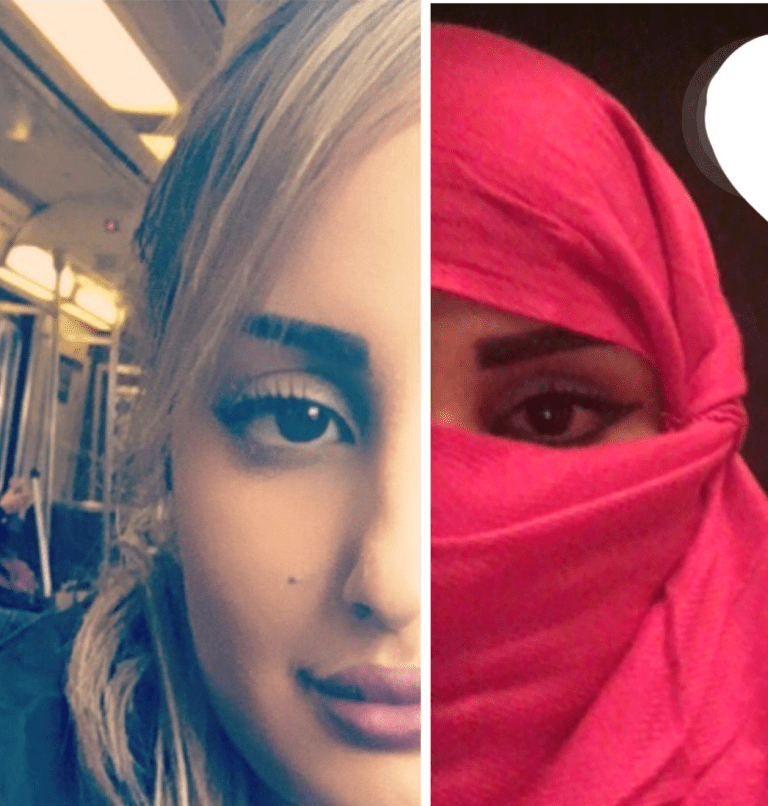
[Note: two stories of Saudi women appear at the end of this piece]
History of Oppression
Saudi Arabia in the 60s and 70s, just like most countries in the Middle East during that time, from Egypt to Syria, underwent radical shifts in culture as more of its populace experimented with art and discussed new ideas, such as whether the ban on women driving — imposed in 1957 — should be lifted (what should be noted is that women can drive in non-public areas and only if their guardians allow it; however, they are not allowed to drive on public highways). But these shifts in culture did not come without hostile reactions.
Ever since its formation as a kingdom in 1932, Saudi Arabia — initially under the leadership of King Abdulaziz — had to deal with trying to synthesize both the non-religious and religious sectors of its nation. Prior to its formation, Al Saud monarchy had a close relationship with the ulema — a religious body of clerics. The ulema adhered to a more orthodox version of Islam, “Wahhabism,” and helped the conquest of Al Saud monarchy over most of the Arabian Peninsula throughout the mid-18th through the early 20th century. This bond between religion and the state (theocracy) helped to create the kingdom, as the government claimed its religious legitimacy from the Wahhabi clerics in turn for the clerics being able to propagate the “Tawhid” doctrine — monotheism (an intertwining of religion and politics was crucial in maintaining KSA’s legitimacy).
This changed when British imperialistic ventures in the Middle East proved to be an obstacle for the Saudi government, forcing the drawing of strict borders with surrounding nations. KSA had to cut concessions to the ulema and instead pursue secular goals: non-religious national security and foreign policy goals. This muddled the relations between religion and the state. While more technological and secular influences made their way into the country from western nations, and a “modernization” of the country began to take root, Mullahs and clerics condemned this “westernization” of Saudi Arabia in their mosques. However, these mullahs dared not delegitimize the royal family, and when Al Saud monarchy called upon religious justifications for its proposed state policies, clerics did not dare refuse (this “contradiction” remains, as clerics “criticize” policy in theory, but legitimize it in practice for the state — highlighting something worth note: the power of the monarch). After the abolishment of slavery in 1962, pushed by Prince Faisalbin Abdulaziz Al Saud and in conjunction with international pressure from the United States and Britain, Saudi Arabia’s growing internal struggles and changes led to the abdication of King Saud and the appointment of his successor — King Faisal.
King Faisal introduced “radical” policies in the 60s and 70s to Saudi Society that would alter its structure. Through the pushing away of Wahhabi draconian rules and condemnations, Faisal was able to allow women the ability to seek an education and allowed for the creation of Saudi television — policies that cemented Faisal as a “reformer king.” This angered a great deal of Wahhabi clerics and religious fanatics, who saw these policies as a “perversion” by the West on Saudi society. These clerics were not alone in their attitudes to westernization, as religious fanatics throughout the Middle East grew increasingly angry at their governments “capitulation” to Western influences — seeing their nations step away from “pure” Islam. However, in 1975, Faisal’s reign ended with assassination by his deranged nephew — Faisal bin Musaid. After King Khalid’s ascent to the throne to fill void left by Faisal, KSA found itself amidst turbulent political winds, as nations surrounding it were grew involved in its internal struggles, from Iran to Iraq. These winds engulfed Saudi Arabic in 1979 with the seizure of the Grand Mosque in Mecca.
Armed with guns smuggled in via coffins, a group of insurgents stormed the Grand Mosque in Mecca and declared that Mohammed Abdullah al-Qahtani was the Mahdi (redeemer of Islam) and demanded King Khalid step down. Allegedly receiving word from Allah while in prison, Juhayman al-Otaybi, the religious activist who led the attack on the mosque, believed Saudi Arabia had lost its way and saw it as an imperative to not only rid the country of “western perversion,” but to also bring it back to a “purer” form of Islam. Otaybi and his brother-in-law, Qahtani, gathered a group of a few hundred devotees to enter Mecca’s holiest Mosque during the hajj (pilgrimage). Taking hostages, Otaybi demanded King Khalid step down. This “mahdist” group occupied the mosque for nearly two weeks. It was quelled when French and Pakistani forces, scrambled together by the royal family in desperation to secure KSA’s legitimacy, stormed the Mosque, killed Qahtani and captured Otaybi.
However, King Khalid had to seek a “fatwa” (religious decree) beforehand from the ulema to allow those forces to be given access to the mosque to remove the insurgents. The ulema sought the opportunity to push for an amending of relations between the state and religion. In turn for allowing access to the Grand Mosque, it demanded more power to affect policies, which it received after the recapture of the Grand Mosque. This increase in power meant that the Monarch gave Wahhabi clerics more decision making abilities and agreed to help export its religious ideology (Wahhabism) globally in the following decades.
With the reforging of the alliance between state and religion, Saudi Arabia started to reverse the modernization that had gripped it in the 60s and 70s. The ulema began to impose stricter Islamic law (Sharia) upon the country: censoring media, enforcing greater restrictions on women and banning things like alcohol. Forcing women to cover up, either with an abaya or with hijab, KSA ended its liberal experimentation and started to enforce traditional roles upon Saudi women. King Khalid’s successor, King Fahd, allowed for the formation of the “Committee for the Promotion of Virtue and the Prevention of Vices” (CPVPV), which intended to maintain these laws. It did this through the Religious police who were given greater reign to enforce dress codes, sex segregation (aptly denoted by some as “sex apartheid”), and the Male Guardianship system. If a woman was seen in public unaccompanied by her Guardian, then the religious police could take her and lock her up in a “care home,” a prison for women. In the education system, more schools were forced to teach religious studies. In this way, the ulema regained Saudi Arabia’s status as an Islamic nation and ensured “Islamic values” were spread to its populace — orthodox values as opposed to liberal ones. This “Wahhabi” imposition on Saudi society did not come without its resistance.
A small pocket of dissenters willing to raise their voices against tyranny and defy state law began to speak out over the years. This was the case in Riyadh in 1990, when a couple dozen women drove cars throughout Saudi Arabia’s capital. Knowing the risks perfectly well, these women took their guardians’ cars and drove them — in defiance of the law. Paying with the loss of their passports and jail time, such a demonstration only showed the desire of women to have rights and a sheer desperation of the Saudi government to keep its legitimacy through force. This spirit of protest from Saudi women continues on even in the 21st century.
Caption: Wajeha al-Huwaider driving in 2008

Moving to end the Male Guardianship system
The movement has blossomed with the advent of the internet and social media as more women gain access to platforms that allow them to voice their experiences under the Male Guardianship system. Despite KSA banning certain social media sites and apps, such as Skype, Facebook and Whatsapp, sites like Twitter and Instagram remain, providing a venue for women to write and share videos of what life is like in the KSA.
While there are many women who adopt pseudonyms to protect their identity from Saudi authorities, there are a brave few who choose to come out publicly — despite the costs and personal risk. Saudi women activists like Wajeha Huwaider, a woman who was arrested for posting a video of herself driving a car in Riyadh in 2008, and Manal al-Sharif, a woman who launched the “Women2Drive” campaign that sought to teach Saudi women to drive in 2011, both have been in the public eye and have protested the ban on women drivers. Aziza Yousef is another activist who is involved in the highlighting of women’s rights abuses in KSA. Emphasizing a couple cases in 2014 (one where a woman died on campus in Riyadh after not being given access to paramedics, all because of not having a male guardian), Aziza sought to petition the Shura Council with other activists to demand an end to male control over women. These activists seek to highlight the grave human rights violations that Saudi Arabia is guilty of and have inspired many Saudi women to take up a new mantra. A mantra that has since gone on to define a movement: “I am my own Guardian.”
“When you are born a girl in KSA, you will feel that the only crime that you have committed is being born into the wrong sex. I am forced to love someone I hate. However, I am not the only one. There are many like me in my country. Many women who suffer as I do. We want our freedom from this tyranny. We want the Male Guardian system to end. This is my wish. My name is Aisha. I am just another woman who lives in KSA.” -Aisha
[Aisha’s story attached at the bottom of this essay]
In mid-2016, Saudi women took to Twitter to start a movement to end Male Guardianship. Tweeting under various hashtags, such as #StopEnslavingSaudiWomen, #TogetherToEndMaleGaurdianship and #سعوديات_نطلب_اسقاط_الولايه (abolish the Male Guardianship system), Saudi Women started to raise awareness of the harrowing experiences that occur regularly in KSA. Many of these women, which included activists like Hala Al Dosari, posted videos and their stories of oppression, and demanded an end to Male Guardianship and Saudi women’s liberation.
#سعوديات_نطلب_اسقاط_الولايه is the Arabic hashtag that many Saudis use to voice their concerns. Some of the stories included in this tag are horrifying and provide a glimpse into the lives of Saudi women. Many of these stories include domestic abuse cases where the male guardian has subjected his daughters and wives to torture, psychological manipulation, and rape — and has gotten away with it! Human Rights Watch wrote an excellent piece in July 2016 called Boxed In which highlighted many experiences from Saudi women.
Exposing the injustice and discrimination of the system, the movement to end Male Guardianship has, broadly speaking, three goals, which many of those involved would agree with:
- Abolish the Male Guardianship System.
- End the ban on Women driving.
- Acknowledge human rights for women.
However, in order to achieve these goals, Saudi Arabia needs to acknowledge how it abuses its own people. The Saudi government is reluctant to do this and at times denies its oppressive treatment of women. This is evident with it saying one thing to United Nations Human Rights Council but doing another within the kingdom. It is a sad state of affairs when KSA is Chair of the Human Rights Council of the UN. Prior to the current King Salman, King Abdullah had made small concessions to international pressure to give women greater rights. Electing thirty female members to the Shura Council, more as a publicity stunt than anything else, Abdullah had made slow progressions.
Within the movement, there are both non-Saudis and Saudis alike who do their part to raise awareness of the plight of Saudi women. Those who are against the movement claim it has a “Western agenda” in mind, because of the involvement of Western individuals. This rationale follows the same conspiratorial mindset of those who claimed that Otaybi’s zealots, such as the Ayatollah of Iran, were “CIA-backed agents.”
There is an international presence within the movement, but what must not be forgotten is that the movement is for Saudi women’s liberation. Saudi women come first and their concerns for rights should be the focus of the movement. In a nation where a woman can have her entire life dictated by a male guardian, where this guardian can take away her rights to go to school or seek medical assistance and so on, it is imperative to raise awareness of her struggles and seek justice to end them.
The fight for Saudi women’s rights is just one of the many fights that exist in the Arab world. Across the Middle East, women undergo their own struggle against oppression, whether it be from the totalitarian forces of ISIS to the theocratic imams of Iran, each population battles for freedom. In these cases, there are those who have no personal stake in the issue, but choose to take the side of the victim and aid them in their struggle. These humans take up Bertrand Russell’s injunction to “Remember your humanity and forget the rest.”; refusing to be spectators of injustice and doing what they can to help; reminding those facing oppression to continue to raise their voices — as silence is what gives tyranny power.
The government of Saudi Arabia cannot ignore its populace’s voices forever.
Appendix
Abaya’s Story
I do not care anymore for this life. I have become empty inside, as a result of the abuse around me.
Everyone is against me and accuse me of doing sexual things that I have not done!
They make me out to be an oppressor, but it is they who support an oppressor!
When I was nine years old, my father sexually abused me. But I didn’t stay quiet, and I told my mother about what he did to me. It was the worst thing that I did, as he only became angrier and acted crazy. He expected me to be quiet, but I refused! Mother told me to tell her if anyone touched you inappropriately, then I had to always speak up. I never expected it to be my father!
As a result of me speaking up, he became very abusive to me. He would deliberately scare me and try to kill me, but my mother would stand in his way and she would threaten him that she would tell everybody about what he did to me. I was only a child and I would not sleep for some nights because I was afraid of him as he always threatens to kill me. He would tell me, “by god I will nail your head to the floor!” When we moved to another house I was relieved to find the room me and my sisters shared had a lock. I started locking the door each night but he would still threaten me that he would insert a gun from the window and shoot me from there. I spent nights sleeping in the corners of the room so the gun wouldn’t reach me. Why does he do this?
I want to understand why this happened to me? I’m a person who hasn’t done anything wrong, I was a ‘model’ girl. I did what I was supposed to do, from prayer to listen to my mother. As the years went on, he continue to deny me things. He tied to prevent me from going to school, but I would go each year and felt involved in a constant fight! Some days I was afraid he would see me and hit me infront of my friends. When I would come off the bus, he would slap me. Even my bus driver tried to stop him. These efforts were in vain, as he would continue to humiliate me and abuse me by telling how he wants to take me out of school.
He wouldn’t give me an allowance even. Everything I owned were hand me downs from my sisters and mother since I was a child. I used to wear my brother’s shoes at school because he was the only one who was close to my age at the time and I remember the girls in school would make fun of me since they were boys’ shoes. Even my name he put it in his company so he can prevent me from supporting myself (I never understood why he did this.) He refuses to support me and doesn’t allow me to support myself. I don’t know what to do with myself. I’m experiencing severe depression. I’m always thinking about suicide, especially in the last couple of months. But I always think about my mother and my siblings and I don’t want to leave them alone.
He doesn’t even allow me to go to the hospital. I have asthma, and a many time I get severe attacks where I can’t breathe and my mother tells him take her to the hospital but he would say No, let her die. I want her to.
My father is just despicable. He’s the worst person ever.
He would lock me up in my room for days. My mother would bring me food from the window. Even the bathroom, I would only go when he’s not in the house and if he’s back I could never go in. I would avoid drinking anything so that I don’t need to go.
He’s always helping everyone, even some of his friends’ daughters so that one would believe us. When I call the police after he hits me they would ask me, what did you do? Then they would give me numbers to call none of which I get a response. So I lose hope.
When I called human rights, they called him and he lied to them and told them that he loves me and cares about what’s best for me and that he needs me at home and the worker believed him. He’s a liar. And when the worker called me again to make sure, my father threatened my mother, that if I don’t shut up he’s going to get an official form that proved I’m crazy and that they would take me forcibly to a mental institute.
By god everything I told you is nothing compared to what he’s done to me. I literally want to die. He’s not allowing me to live. He intervenes and prevent me from everything even what I wear. I dreamt of being a teacher. Or to just live a normal life like every other girl. God has gave him many things. He has many foundations under his name. Sometimes I feel that god is unjust. This oppressive man who’s stopping my life and future is just so blessed.
My name is Aisha.
I am a 23 years old woman who comes from the Kingdom of Saudi Arabia.
Before I tell of my experiences living here, I wish to say just one sentence and I want you to read this sentence carefully, “When you are born a girl in KSA, you will feel that the only crime that you have committed is being born into the wrong sex.” Let me explain why it is a crime to be a Girl in KSA.
Since I was five years old, I knew what the difference was between a girl and a boy. You see, I have a brother. When I was five years old, I was arguing with my brother who was at the time three years old. The argument was over food. I told my brother to not throw food on the floor, unless he did not want to eat it — it is wrong to otherwise. However, my brother did not listen to me and continued to throw food on the floor. It was in that moment that my father entered the room, after hearing me arguing with my brother. He beat me with his hands. Why did he do this? Because my brother was a boy and can do what he wants, and I am a girl and have to respect whatever my brother does, even when he is wrong. I remember having to cry in my grandmother’s room after that; it was so wrong.
As I grew, I noticed more and more the differences in the way that my parents treated me, as opposed to how they treated my other sibling brothers. Boys could go out with their friends, but I could not. Boys could take money and go out freely, but I could not. Boys could sleep where they wanted, but I could not. I noticed that whenever my brothers went out with friends, they never had to be accompanied by my father. However, whenever I went out, I had to be accompanied by either my brothers or my father. I felt like a prisoner who had to be accompanied, 24/7, by guard—all for being born into the wrong sex. It is not my fault for being born a girl.
When I asked my mother about why my brothers could get to do more things than me, she told me that it was because they were better than me. In other words, boys are better than girls; brothers are better than sisters. She told me that I was nothing without a male. “Your brothers can drive and bring things that we need, but girls cannot.” I felt so much shame when she told me this. I felt that I was nothing. I felt that I was cursed. The very fact that my mother could say that as if it were nothing, made me feel so helpless.
As the years went on, more and more beatings occurred by my father, and even by my brothers. It was only when I graduated from high school that I decided to change this. I decided to do all that I can to be independent. I wanted to show my family that even if I am girl, I can do many things that boys can. I can still be a successful person even without their support. When I told them that I wanted to study medicine or nursing at college, they laughed at me. My father and mother did not believe that I could be successful at this. However, I did not care about them, because they mean nothing for me. I believed in myself. The next day, I registered into my local university; however, I still have to give my father all the money the university pays for me to allow me to study, because if I refuse, then he will not allow me to study and will beat me.
First year of nursing was so difficult. I had to learn English language, because my course was mainly taught in English. None of my parents are educated and my father did not allow me to have a private teacher, even when I offered to use my own money. He cared more about money than he does about me. However, despite the difficulties brought before me, I managed to persevere and I worked hard to learn English, as well as complete my nursing course. I did all things to achieve high grades and it paid off. For once, I felt so happy. I did achieve some form of small victory. I graduated from nursing college with very high grades and I wanted to study abroad. I wanted to get a scholarship, but my father said “No.” He said it so easily. I felt that I lost hope. I became pessimistic; all my dreams destroyed, because my Male guardian said “No.”
Now I feel, whenever I wake and whenever I sleep, as if my body does not have a soul. I cannot study, I cannot work, I cannot Marry, I cannot go to the hospital, I cannot pay anything, I cannot visit friends without a Male Guardian. I am a slave that is forced to be chained for life. Some of my friends have accepted this reality, but I do not want to accept it. I want to break my chains and break my bondage. I want to breathe freely. I want to be free. I want to live my own life; be my own person. All because I am a woman.
Now you know what I meant by, “When you are born a girl in KSA, you will feel that the only crime that you have committed is being born into the wrong sex.” I am forced to love someone I hate. However, I am not the only one. There are many like me in my country. Many women who suffer as I do. We want our freedom from this tyranny. We want the Male Guardian system to end.
This is my wish.
My name is Aisha.
I am just another woman who lives in KSA.
Written by Anthony Avice Du Buisson (12/12/2016)

